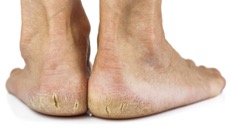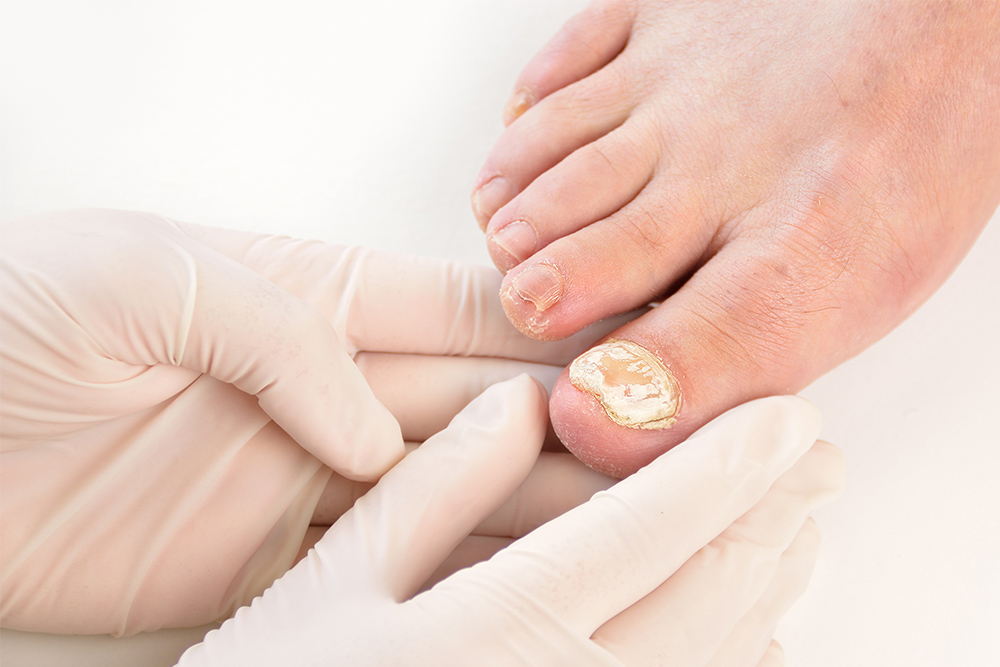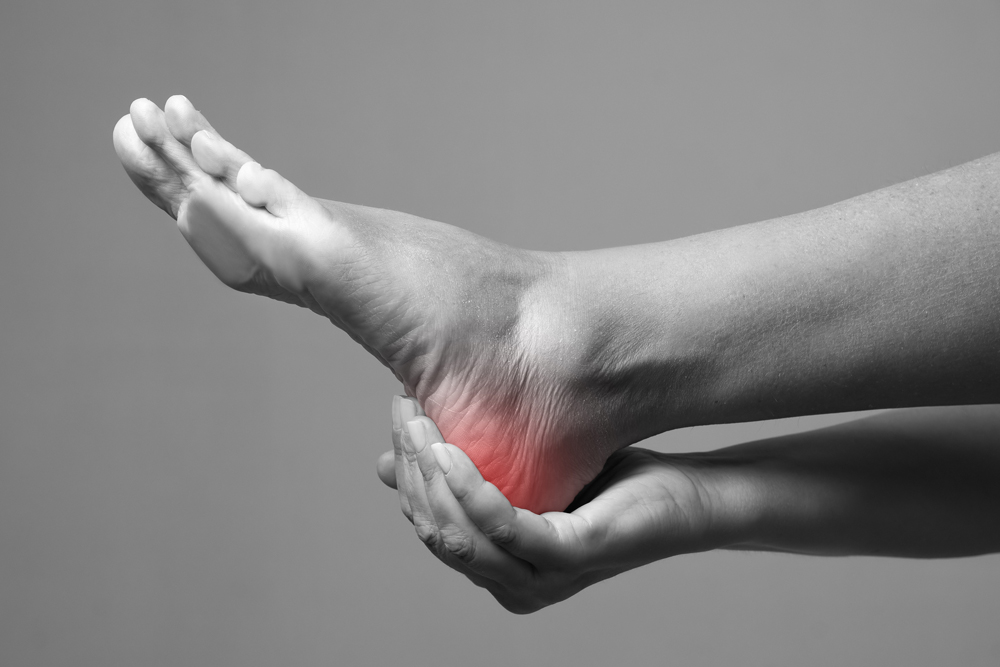
 Cracked heels occur when dry, thick skin on the heels of the feet crack or split. When the cracked heels only affect the outer layer of the skin, you may not notice any pain, though the cracks may be uncomfortable and catch on your socks. Other times, it isn’t just the dry skin that cracks, but also the healthy skin beneath. This is painful, causes bleeding, and makes you vulnerable to infection if the cracks aren’t cared for.
Cracked heels occur when dry, thick skin on the heels of the feet crack or split. When the cracked heels only affect the outer layer of the skin, you may not notice any pain, though the cracks may be uncomfortable and catch on your socks. Other times, it isn’t just the dry skin that cracks, but also the healthy skin beneath. This is painful, causes bleeding, and makes you vulnerable to infection if the cracks aren’t cared for.
What causes cracked heels?
When the skin around the heel becomes dry, it loses its suppleness and elasticity, and often begins to split. Cracks typically occur in conjunction with calluses, which are a build-up of dead skin. Thick calluses can produce deep and painful cracks, and is often the result of excessive force and pressure through the heels. This can be caused by:
- Being on your feet for long periods
- Wearing hard, unsupportive footwear like thongs and open-backed sandals, or bare feet
- Biomechanical factors that result in more pressure on the heels
- Taking hot, prolonged showers
- Increased weight
- Medical conditions like diabetes
As high heels are often associated with wearing open-back shoes and warmer occasions, cracked heels are a common complaint in the summer months.
Cracked heel symptoms
Alongside the cracking and splitting in your heels, you may also experience other cracked heel symptoms such as discomfort, pain while standing, itchiness, bleeding if the cracks are deep, and a white, dry appearance at the heels.
Cracked heels treatment
Cracked heels treatment starts with removing the hard, dry skin, treating any underlying problems or infections, and then taking proactive measures to prevent them from recurring in the future.
Here at My FootDr, we can safely reduce the thickness of your callus to a safer and more manageable level. We will check your heels for any underlying problems or signs of infection, using dressings appropriately as needed. We can help identify what is contributing to the development of your calluses and cracked heels, and create a management plan to help reduce the likelihood of the problem returning.
Our top tips on how to prevent cracked heels
- When you notice callus building up on your heels, see your podiatrist to have the heel callus safely removed
- Moisturise your feet daily, avoiding the areas between the toes. This is usually a urea-based cream that will help keep the skin soft and supple
- Select appropriate footwear that won’t encourage callus or dry skin development. Avoid the prolonged use of thongs or bare feet, and wear sandals with enclosed heels whenever possible
- Wear stockings or socks when possible
- Ensure adequate water intake and essential fatty acids within your diet (e.g. Omega 3 fatty acids) that may assist in preventing dryness and cracking by helping to keep the skin hydrated and more supple
- Regular exercise can help improve circulation to help heal the cracks and discourage them from recurring
Referral to other health professionals may be necessary when this condition is caused by nutritional or other medical disorders. Your My FootDr Podiatrist can arrange this where appropriate.
Cracked Heels FAQ
How to fix cracked heels
The best way to fix cracked heels is to make an appointment with your podiatrist so they can remove the dry, hard skin from your heel. Then they will be able to assess the area and treat any underlying problems or infections. They will then be able to recommend proactive measures to help reduce the chance of recurrence.
How to soften cracked heels
The most effective way to treat cracked heels is to see your podiatrist for a formal assessment of any underlying problems or infections. However, for short term relief you can soften the skin on your cracked heels by using a thick moisturiser or urea cream. It may also provide relief to soak your feet in a foot bath with lukewarm, soapy water for 20 minutes.
Do cracked heels hurt?
When only the outer layer of skin is affected you may not notice any pain, though you may experience discomfort as the cracks catch on your socks. However, when the cracks are deeper and affecting the healthy skin underneath, cracked heels can be painful, cause bleeding and without proper treatment can make you vulnerable to infection.
Do podiatrists treat cracked heels?
Podiatrists do treat cracked heels, however referral to other health professionals may be necessary when this condition is caused by nutritional or any other medical disorder.
Make an appointment with My FootDr. for your cracked heel treatment.





